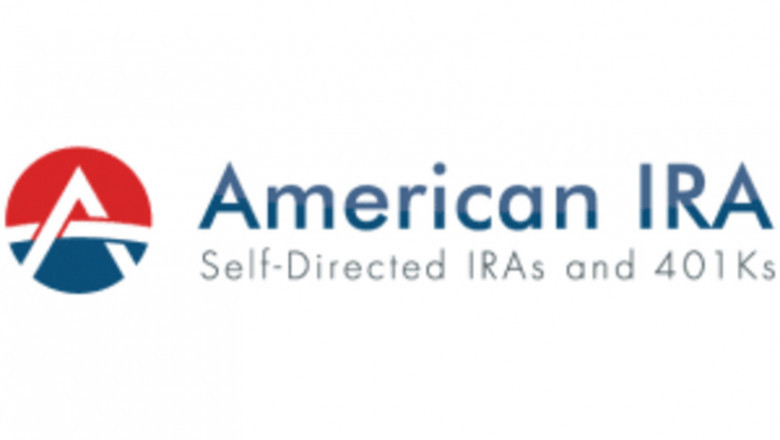views
A Self-Directed SEP IRA (Simplified Employee Pension Individual Retirement Account) offers small business owners a unique opportunity to grow their retirement savings by diversifying investments beyond traditional options. By allowing the flexibility to invest in alternative assets such as real estate, precious metals, and private equity, a Self-Directed SEP IRA can provide higher returns and greater control over your retirement portfolio. In this blog, we’ll explore the benefits of a Self-Directed SEP IRA, how it works, and how it can enhance your retirement planning strategy.
What is a Self-Directed SEP IRA?
A Self-Directed SEP IRA is a retirement account designed for self-employed individuals or small business owners with few or no employees. Unlike traditional IRAs, which limit investments to stocks, bonds, and mutual funds, a Self-Directed SEP IRA allows investors to direct their funds into a broader range of assets, including real estate, private loans, and other non-traditional investments.
The SEP IRA portion refers to the contribution limits and tax benefits associated with the account. Contributions to a Self-Directed SEP IRA are tax-deductible, and the account grows tax-deferred until withdrawals are made in retirement.
How Does a Self-Directed SEP IRA Work?
To understand how a Self-Directed SEP IRA operates, it's important to first grasp the basic workings of a SEP IRA. The SEP IRA allows business owners to contribute up to 25% of an employee’s salary or $66,000 (for 2023) into their retirement accounts, whichever is lesser. The account is tax-deferred, meaning that taxes are not owed until the money is withdrawn in retirement.
With a Self-Directed SEP IRA, you can invest in a variety of alternative assets such as:
Real Estate: Purchase rental properties or engage in real estate flips. Rental income and capital gains grow tax-deferred until retirement.
Precious Metals: Invest in gold, silver, and other metals as a hedge against inflation and market volatility.
Private Equity and Startups: Invest in private companies, start-up ventures, or private equity funds that may offer higher returns.
Notes and Loans: Lend money for real estate transactions or other investments, earning interest income inside the retirement account.
Tax Liens and Deeds: Purchase tax liens or deeds at auctions for potential returns through interest or property acquisition.
The Self-Directed nature of the account gives business owners complete control over their investments. With the help of a custodian that allows alternative investments, you can direct your retirement funds into assets that align with your financial goals.
Benefits of a Self-Directed SEP IRA
Higher Contribution Limits: One of the most attractive features of the SEP IRA is its generous contribution limits. Business owners can contribute significantly more to a SEP IRA than a traditional or Roth IRA, making it an excellent option for those looking to rapidly grow their retirement savings.
Investment Flexibility: Unlike traditional retirement accounts that limit you to stocks and bonds, a Self-Directed SEP IRA allows you to invest in a wide range of alternative assets. This flexibility can be especially beneficial for investors who are looking for high-growth opportunities outside of the stock market.
Tax Benefits: Contributions to a Self-Directed SEP IRA are tax-deductible, and the account grows tax-deferred until retirement. This can lead to significant tax savings, particularly for business owners who contribute large sums to their SEP IRA.
Control and Diversification: With a Self-Directed SEP IRA, you have complete control over your investment decisions. You can diversify your portfolio into various asset classes, helping to mitigate risk and maximize potential returns.
Things to Consider
While the Self-Directed SEP IRA offers significant advantages, there are also some things to consider:
Custodian Fees: Self-Directed SEP IRAs require a custodian to manage the account, and custodian fees can vary depending on the asset types being managed.
Complexity: Investing in alternative assets requires careful research and expertise. If you are not familiar with real estate, precious metals, or other alternative investments, it’s important to seek professional advice.
Liquidity: Some investments within a Self-Directed SEP IRA, such as real estate, may not be easily liquidated. Be mindful of your retirement goals and potential access to funds.
Conclusion
A Self-Directed SEP IRA offers small business owners an excellent opportunity to grow their retirement savings through alternative investments. With higher contribution limits, investment flexibility, and tax advantages, it’s a powerful tool for building long-term wealth. However, as with any investment strategy, it’s essential to understand the risks and complexity involved. By partnering with a reliable custodian and doing thorough research, you can leverage the power of a Self-Directed SEP IRA to create a retirement plan that aligns with your financial objectives.






















Comments
0 comment